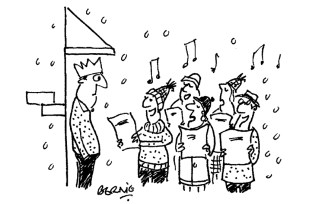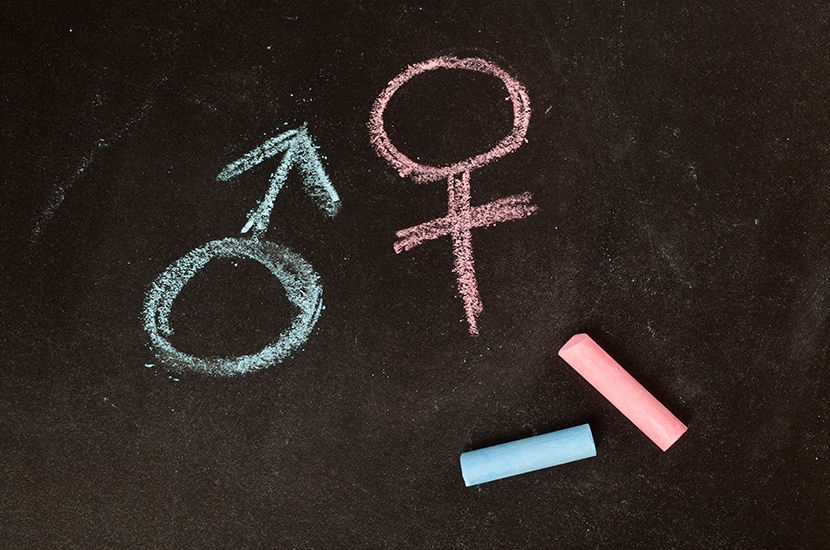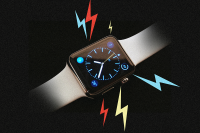I’ve always been perplexed why anyone lucky enough to be born male would want to swap sexes. But it seems completely rational to me that girls might rather be boys.
The UK’s recent High Court judgment that under-16s aren’t mature enough to give informed consent to puberty blockers highlighted the extraordinary switcheroo that has recently taken place in transgender clinics. Not only have diagnoses of gender dysphoria gone through the roof, but who wants to be what has reversed. A few years ago, nearly three-quarters of patients unhappy with their sex were male; now it’s almost exactly the other way around. So in this season of goodwill, I’d like to extend some genuine sympathy to all those underage girls desperate for puberty blockers.
Granted, I’m sceptical of the exploding demand for changing sex. A natural human inclination to envy, an understandable desire for simple answers to complex problems, increased medical capacity to revise what for 200,000 years was immutable and the unsettling power of social fashion have all combined to multiply what a decade ago was a tiny handful of folks profoundly alienated from their bodies. But know what? I’ve felt alienated from my body since I was 13. I can’t blame any teenage girl for experiencing the same ‘What the hell is this?’ as I did.
Male puberty presents its challenges. The voice cracking. The hairs sprouting (though pubic hair on boys isn’t considered gross; for girls these days, alas, anything follicular down there is horrifying). The acne — which girls get, too. Most of all, that wilful fifth limb, which grows in size and insistence and seems to have a mind of its own. Its scheming to make babies you probably don’t want yet must exert a terrible tyranny.

But puberty for girls is much more drastic, and thus more apt to induce a sensation of being trapped in an organism that is out of control and has nothing to do with you. May we start with periods? At that first spot of red in my knickers, my mother chimed cheerfully: ‘You’re a woman now, dear!’ But this obligatory jolly hockey sticks routine unhelpfully disguised the horrific imposition that this age-old ‘transition’ levied on the rest of my reproductive life.
Periods hurt. Particularly in your teens, they hurt a lot, though most girls of my generation were instructed to grin and bear these ‘mild discomforts’: a debilitating lower backache; piercing uterine pains; a deep, grey, drawing sensation, as if someone is bungee-jumping from your pelvis. Yet I was flat-out disallowed from staying home from school ‘only’ because of my period.
They’re messy. They ruin your clothes. Today’s rhetoric may have grown more rah-rah, but however open we’re now meant to be about periods, it must still be mortifying to sit down and ruin the upholstery. The distinctive smell always made me feel self-conscious, obvious, marked.
Fertility makes you fat. And not only for four or five days of bloating, but for half the month. I always knew that I was ovulating, or that another incessant reminder of my wonderful new ‘womanhood’ was on the way, when I looked in the mirror at a round, puffy, Rebecca of Sunnybrook Farm face that I did not recognise and did not like. The owner of Period Face looked like a pushover and an idiot.
Indeed, puberty inclines girls towards fat, because you’re being plumped up to carry all those babies that you probably don’t want yet (or ever). While boys grow in the vertical direction, girls are more likely to expand in the lateral. We can debate western beauty standards another time. The point is, maybe you don’t want to expand. My mother tried to get me excited about ‘growing curves’, an expression that always made me ill. I was a tomboy. I didn’t want ‘curves’. Resistance to these unsolicited bulges is one reason some girls starve themselves.
At puberty breasts arrive whether or not you asked for them, like an amuse-bouche
Breasts: they arrive whether or not you asked for them, like an amuse-bouche. I was ambivalent. They seemed rather in the way. Before running bras were a thing, I had to keep my wrists braced under them on the track or they’d plop everywhere. And you get no say about how large they grow. You can’t object: ‘I’m sorry, but I don’t think of myself as someone with big boobs.’
Whereas boys become more powerful — broader-shouldered and better-muscled even absent a single press-up — girls stay weak unless they make a huge athletic effort, and they grow more vulnerable. The threat of pregnancy raises the prospect of alienation from your body to a whole other level.
I hated puberty, and it was hardly any solace that the physical inconvenience this process initiated would last for 40 more years (the reward for which would be menopause; oh, great). In prepubescence, my brothers and I didn’t look all that different; painfully, physiological divergence drew us emotionally apart. But if I didn’t fancy all these changes that dislocated my sense of self, in the 1970s your sex was pretty much a given. My mother didn’t put it this way, but she conveyed as much: ‘You just have to suck it up.’
Apparently, that’s no longer the case. Further put off by the falsity and exaggeration of Kardashian-style femininity, many a teenage girl must be tempted to slam on the hormonal brakes. Take this cup from me. I’d rather be a boy.
Unfortunately, it’s not that simple. Surgical transition entails a raft of grim physical impositions that are arguably far worse. The long-term effects of puberty blockers and cross-sex hormones on developing teenagers are unknown. Gambling with infertility may not mean much at 14, but may mean the earth at 35.
Still, I get it. Women are amazingly uncomplaining about the unpleasant biological aspects of being female. If late in the day, I’m complaining. For all of us.







Comments